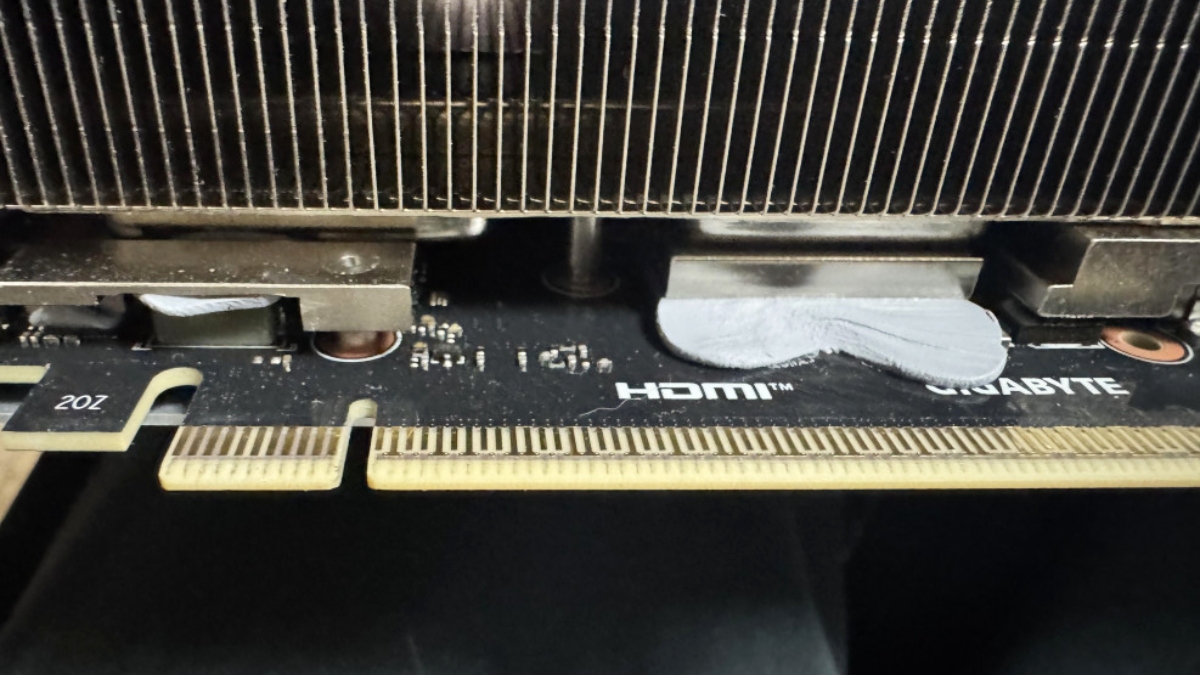Gigabyte responds to thermal gel leakage on RTX 5080, suggests it could be “cosmetic variance”

Table of Contents
Just a couple of days ago, we reported on news of a user dealing with thermal gel leakage in their RTX 5080 graphics card. This issue has appeared online a few times; Gigabyte has now responded with a statement today. The Gigabyte 5080 was reportedly only used for 2 hours of gaming a day, but thermal gel leaking out from the component was clearly visible in its vertical mount.
The initial report came from a forum post on the Korean community site Quasar Zone, if you wish to read more about it. Moving on to Gigabyte’s response now, the company gives a possible explanation as to why the seemingly ‘leaking’ gel came to be. In an official statement, Gigabyte says that a “higher volume of gel” was applied to early batches, but assures that there’s nothing to worry about.
Prime Day may have closed its doors, but that hasn't stopped great deals from landing on the web's biggest online retailer. Here are all the best last chance savings from this year's Prime event.
- Sapphire Pulse AMD Radeon™ RX 9070 XT Was $779 Now $719
- AMD Ryzen 7 7800X3D Processor Was $449 Now $341
- Skytech King 95 Ryzen 7 9800X3D gaming PC Was $2,899 Now $2,599
- LG 77-Inch Class OLED C5 TV Was $3,696 Now $2,996
- AOC Laptop Computer 16GB RAM 512GB SSD Was $360.99 Now $306.84
- Lexar 2TB NM1090 w/HeatSink SSD Was $281.97 Now $214.98
- Apple Watch Series 10 GPS+ Smartwatch Was $499.99 Now $379.99
- AMD Ryzen 9 5950X processor Was $3199.99 Now $279.99
- Garmin vívoactive 5 Smartwatch Was $299.99 Now $190
*Prices and savings subject to change. Click through to get the current prices.
Gigabyte explains the quality assurance process
According to the statement, which references both the RTX 50 series and RX 9000 series from Nvidia and AMD, respectively, Gigabyte’s thermal gel application is engineered to “ensure optimal contact across uneven component surfaces” and is a fully automated process. The company assures that all Gigabyte graphics cards go through “rigorous testing to verify the performance and stability” to endure drops, vibration, extreme ambient temperatures, and both horizontal and vertical installation.
Gigabyte goes on to say that its thermal conductive gel “can endure at least 150 °C before any melting or liquification could happen” while remaining securely in place. However, it does suggest that the reported case could simply be an overapplication:
“In some early production batches for the GIGABYTE GeForce RTX 50 Series, a slightly higher volume of gel was applied to ensure sufficient thermal coverage. The overapplication may cause the excessive gel to appear more prominent, extended, and could potentially be separated from the designated area. While the appearance of extra gel might be concerning, this cosmetic variance does not affect the card's performance, reliability, or lifespan. We had already inspected the issue, and adjusted the gel to the optimal amount in the following production runs.”
Source: Gigabyte
Assuming that we can rule out leakage due to overheating and melting on the grounds of the 150 °C claim, it seems like the user’s issue is one of an abundance of gel, which is purely “cosmetic variance,” as Gigabyte phrases it.

